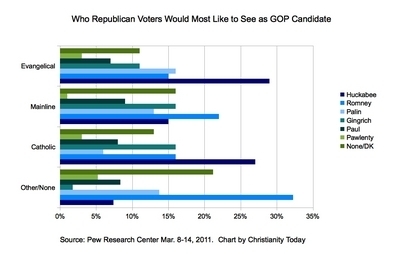Matthew Yglesias's Blog, page 2371
March 30, 2011
Solving a Worker Shortage

Rick Santorum says we need to cut Social Security because "there aren't enough workers to support retirees."
Dan Savage sensibly suggests that we get some more workers:
If only there were a large country, maybe adjacent to ours, that was home to a lot of people who wanted to come to the United States to live and work. And if the people in this hypothetically adjacentish country tended to have large families, and tended to be religious, social conservatives would no doubt to create a path to citizenship for folks from this hypothetical country. Because American needs more people, right?
Or we could even get workers from some country that's not Mexico! Many Americans seem to have gotten it into their heads that Mexico is a cesspool of unimaginable poverty, but its per capita GDP is actually above average. It's just the only poor country whose physical location makes "sneak across the border into the USA" look like an attractive option. The point is that it's absurd for the country to be simultaneously suffering from an illegal immigration problem and a population growth shortfall. Let people come, and let them work, and let them pay taxes, and let everyone get their retirement payments.


March 29, 2011
Endgame
What words were written for:
— All about Richmond, VA.
— Michael Mandel is wrong about productivity in the recession and also wrong about men's earnings over the past 40 years.
— Cantor says no to additional CRs.
— Commentary's "Jewish Democrats" talk sounds a lot like the dread dual loyalties to me.
— What is graphic journalism?
In honor of Michigan, the only state to lose population in the last sentence, it's The Get-Up Kids' <div class=">
All Politics Is Local: Arab Edition
In America, election outcomes are overwhelmingly driven by macroeconomic outcomes. And as Max Fischer notes, perhaps we should assume the same thing about Arab politics:
Though these three states [i.e., Tunisia, Egypt, and Syria] all took such vastly different approaches to the two issues that supposedly drive popular sentiment in the Arab world — the U.S. and Israel — they have endured startlingly similar anti-government protest movements. But if these foreign policy issues are really as important to Arab publics as Assad believes them to be, if they really constitute the key variable in regime stability, then why have these three governments found themselves embroiled in such similar protest movements? Why did Tunisians ultimately rise up against economic restrictions and police brutality? Why did Egyptians call for shutting down the interior ministry and raising the minimum wage, but not ending Mubarak's alliance with Israel? For that matter, why did they endure decades of Egyptian-Israeli ties, only to finally rise up over totally unrelated concerns? Why are Syrian protesters making the same demands now? Is it possible that Assad, and many of us in the West, have gotten Arab priorities so wrong?
I wouldn't even say that we've necessarily gotten the priorities wrong as simply failed to ask the question. We are very interested in the Arab-Israeli conflict and the geopolitics of oil. We're not really interested in the price of food. But people who actually live there see things differently.


Women Engineers Are Jerk-Averse

(cc photo by meneldur)
Anna North notes new research on why women leave the science and engineering fields, which often comes down to women not enjoying being mistreated by jerks:
In Stemming The Tide: Why Women Leave Engineering, two University of Wisconsin-Milwaukee professors report on their survey of over 3,700 women with engineering degrees. They found that just one in four women who had left the field reported doing so to spend more time with family. One third left "because they did not like the workplace climate, their boss or the culture," while almost half departed due to "working conditions, too much travel, lack of advancement or low salary" (respondents were allowed to check more than one reason). The researchers also found that among women who got engineering degrees but never entered the field, a third made that decision "because of their perceptions of engineering as being inflexible or the engineering workplace culture as being non-supportive of women." And, unsurprisingly, "Women engineers who were treated in a condescending, patronizing manner, and were belittled and undermined by their supervisors and co-workers were most likely to want to leave their organizations." Writes study author Dr. Nadya Fouad, "Bottom line — it's not all about family for most of the women who left engineering.
Not that shocking, but important nonetheless. Dysfunctional social norms that drive talent out of key fields are a real burden on the country, as well as on the individual women impacted.


Record Profits—On Wall Street
I'd sort of been letting my eyes glaze over at pieces about "record profits but workers still unemployed blah blah" on the theory that first you get the profits, then you get the expansion of business activity, and then you get the job growth. But now Annie Lowrey has me alarmed: "But in the last quarter of 2010, the story was all about Wall Street. Profits actually decreased a bit at nonfinancial firms. But companies like investment banks and insurers saw profits climb to an annualized $426.5 billion."


Mitt Romney's Christian Problem
I that while Mitt Romney's RomneyCare problem may be surmountable, his additional Mormon problem may not be:

This is very different from conservative evangelical hostility toward Catholics, which dissipated in the 1970s and 1980s (for a taste of old-school fundamentalist anti-Catholic rhetoric, read a Chick tract). Catholics, at the very least, shared key doctrines with evangelicals. Mormons are in a different boat entirely, and Romney will have to overcome that prejudice to win the nomination, given the evangelical stranglehold on Republican grassroots operations.
To put a slightly more precise spin on this, I think Romney has less of a "Mormon problem" than he does a "Christian problem." Specifically, it's very important to a lot of American Christians that other people be Christian. The media is dominated by secular people who aren't invested in this sort of thing, and tend to accept at face-value the idea that Mormonism is one of several Christian denominations, but a great many Christians disagree with this diagnosis. After all, it's part of the essence of Bible-based Protestantism that the Bible doesn't have a sequel. The Catholic church says that Mormon baptisms are invalid and United Methodist Church says "that the LDS Church is not a part of the historic, apostolic tradition of the Christian faith."
At any rate, if you look at David Thomas Smith's research (PDF) you can see that attitudes toward Mormonism were a huge driver during the 2008 campaign:
Using Pew data from 2007 which asked questions about attitudes toward Mormonism and toward Mitt Romney, I find that the belief Mormons are not Christians plays a very important role in the formation of general anti-Mormon attitudes, and that while this belief is most widespread among evangelical Christians, it has the same importance in attitude formation toward Mormons even for individuals who are not Christians. The effect of the "Christian question" remains significant but decreases in importance when applied to more politically concrete questions—whether the respondent would be more or less likely to support a Mormon presidential candidate, and how the respondent feels about Mitt Romney. However, more generalized feelings about Mormons are the single most important factor in evaluations of Romney, even more so than party identification or ideology.
All that said, I think it's unwise to write anyone with some substantial base of support off. That's because the Republicans generally do winner-take-all primaries, which makes for very unpredictable outcomes in a multi-candidate field.


The Limits of Retroactive War-Assessment

Kevin Drum is absolutely right that initial reactions to Obama's speech yesterday will have nothing to do with the political impact of the Libya operation compared with actual results:
In the end, Obama will be judged on whether his approach works. If U.S. involvement really stays limited; if Qaddafi finds himself out of a job within a few weeks; and if the aftermath of the war isn't too disastrous, then Obama will be vindicated, congressional approval or not. If any of these things doesn't happen — and I'd pay particular attention to the last of them — he'll be in trouble. As with all things, success justifies nearly anything.
Unfortunately, this isn't really a sound way of looking at things. Bad bets still sometimes pay off. And it seems to me that one big problem with initiating wars is that they have relatively unbounded downside risk. You could start five wars, have four of them "work" well enough, and still come out as a loser on net. In particular, I think this is a problem with moving beyond helping the rebels defend Benghazi and insisting on Gaddafi's departure. Gaddafi is bad, and if he goes a better government might come into place, but the Libyan state could also collapse and create a new humanitarian catastrophe. And whatever happens, the reality is that western officials are making this decision while possessing very little relevant information.


Fun For Budget Nerds

My colleagues Michael Linden, Jordan Eizenga, Sarah Ayres have put together a fun interactive budget quiz for your amusement and edification. I got two wrong and the rest right.
Anyway, in addition to taking it yourself, I would assume that anyone who bothers to read this blog probably follows politics and policy much more closely than most people do and it would be useful to forward it on to other people you know who don't follow these issues. The public is never going to be devoid of misinformation, but I don't think we should be completely complacent in the face of ignorance either.


The Value of a Liquor License
Via Lydia DePillis, a glimpse into the exciting world of rent:

It's yours for $18,000 a month… Damn! What do you think, realistically, can go into that space and afford an $18,000 a month lease? Interesting that it already has a liquor license. I'm still thinking legit country bar. But that's a lot of Budweisers to sell…

The space may not end up leasing for quite that much. But the fact that the owner sees it as realistic is a fascinating window into the economic value created by the Adams-Morgan liquor license moratorium. Residents of the neighborhood decided that they didn't want any more bars in this bar-heavy area, so they imposed a moratorium. Using that particular means of restricting the supply of bars ends up creating a giant economic rent for the owners of existing licenses. It's much better policy to restrict alcohol supply through taxes, in which case the revenue ends up in the city's coffers. That would allow for a lower level of taxation on non-booze retail.
An even more radical alternative would be to just welcome the idea of more bars opening in Adams-Morgan. You can think of that area as possessing a valuable natural resource known as "unpleasant people want to go drinking there." Allowing for more development of that valuable resource would increase the city's tax revenue and increase the opportunities for employment and entrepreneurship enjoyed by the city's residents. It might also decrease the value of property in what's currently a very expensive neighborhood (cheapest home up for sale is a 343 square foot basement for $169,900) which would be an effective means of increasing the supply of affordable housing in a city whose politicians claim to be interesting in increasing the supply of affordable housing.


Will Chinese Politics Kill Its Environment

This insight from Christina Larson is also quite depressing:
A few things distinguish China's recent environmentalism history: the speed and scale of the problems, and the preference of the government to operate in top-down fashion.
Consider that the impetus for America's environmental protection system often came from the ground up — independent journalists like Rachel Carson and George Bird Grinnell identifying failures in government policy, and powerful outside organizations like the Natural Resources Defense Council suing the EPA when regulations weren't upheld. There's much less space for journalists and activists in China, although more than you might guess. (Hence my interest in writing for The Atlantic about Chinese reporters and grassroots leaders.)
China's not run along Stalinist totalitarian lines anymore, so environmental degradations probably won't reach Soviet proportions like with the Aral Sea, but the lack of political openness is going to be a real problem in this regard.


Matthew Yglesias's Blog
- Matthew Yglesias's profile
- 72 followers



